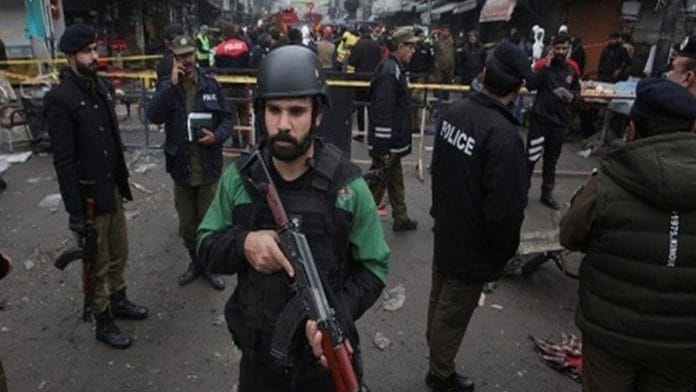Pakistan’s problems seem to be piling up, with many more issues adding to its domestic threat basket. One of the latest and most serious issues facing Islamabad is the buildup of sectarian tension in one of its former tribal agencies, Kurram, where Sunni and Shia groups have clashed violently. With serious weaponry such as shoulder-fired missiles and rocket launchers now being used, there is a greater threat of this escalating into a reinitiation of sectarian conflict that the state took years to control.
There is also the fear that if the situation remains uncontrolled, it could feed into the broader Middle Eastern conflict, leading to disastrous consequences. On 31 July , the Iranian government condemned the violence, accusing Pakistan of failing to protect its Shia population. Pakistan’s Foreign Office rebutted this statement, calling it Tehran’s “unwarranted” intervention in Pakistan’s domestic affairs. This diplomatic back-and-forth gives a picture of what the conflict could potentially morph into if left unchecked.
The Pakistani Foreign Office’s rebuttal was correct, as the issue is indeed domestic. If anything, it demonstrates the poor governance of tribal areas, which were merged into the northwestern Khyber-Pakhtunkhwa province in 2018 without a new, stable administrative structure, particularly after the previous politico-administrative system was dismantled.
The current spate of Sunni-Shia violence revolves around land disputes between the two religious communities dating back to the early 1940s. The British managed these groups, who are spread across Kurram – Shias in upper Kurram, Sunni majority in Central Kurram, and a mix in lower Kurram. The post-1947 Pakistani state continued this system, managing disputes, especially land-related, through the Frontier Crimes Regulation (FCR). According to Iftikhar Firdous, a former journalist and specialist on terrorism in tribal areas, Sunnis remained sceptical of how the British allocated land. Their gripe was that since they fought the British as part of the Deobandi militant movement, the authorities were unfair in land distribution, favouring the Shia community.
The Pakistani government post-1947 handled conflicts using tribal Maliks and political agents. However, in its bid to encourage the Taliban after 1996, the Pakistani state allowed the Taliban to eliminate local Maliks. What complicated matters further after 2018 was that the system of governance, run through commissioners and deputy commissioners, didn’t have the capacity to enforce land settlement rules effectively.
Recently, conflict erupted in Bushehra, upper Kurram, when Shias tried to build an imam bargah, which was disputed by the Sunni population.
Also read: Inflation riots in POK are all about local issues. That’s good for India
Handle the conflict now
The current system of governance has little capacity to settle these differences. The provincial government of Khyber Pakhtunkhwa is reluctant to intervene in the sectarian matter, as conflicts are traditionally handled by the country’s powerful military. Additionally, the Pakistan Tehreek-e-Insaf (PTI) government would not like to stick its neck out against the Sunni population, given its support from the Tehreek-e-Taliban Pakistan (TTP) in the recent 2024 elections. Although the TTP and the Afghan Taliban have not directly interfered, their potential involvement in the conflict in the future cannot be ruled out. Ultimately, the Sunni groups could negotiate pulling the Afghan Taliban and the TTP into the conflict if it expands. Significant pressure groups, such as Anjuman-e-Husainiyah (Shia) and Anjumane Farooqia (Sunni), add to local tensions.
Complicating matters further are Shia and Sunni militants who fought in Syria for or against Daesh (ISIS) as itemerged after 2004 and have since returned to the tribal areas. The Shia al-Zainabiyoun brigade is pitched against several Sunni militant groups, including Sipah-e-Sahaba (SSP) and Lashkar-e-Jhangvi. Interestingly, post 2013, Jaish-e-Mohammed (JeM), which traditionally fought in Indian Kashmir or focused on jihad in Kashmir, started writing against Iran. From 2013-2019, many of its journals I read carried several anti-Iran articles, indicating sectarian bias on which it had earlier remained silent. These battle-hardened militants on both sides are ready to flex their muscles and fight if necessary. Not to forget the Haqqani network, long supported by the state, has spread its influence in the tribal belt.
This is the story of snakes nurtured by the Pakistani state in its backyard returning to haunt it. If not managed properly, there is always the threat of this issue spreading to other parts like Dera Ismail Khan, where the TTP already has influence, Bukkhur in South Punjab, and then Karachi, where sectarian violence in the 1990s and 2000s claimed hundreds of lives. There is always the risk that external actors could manipulate these militant groups, irreparably worsening the situation. Some observers of sectarian conflict I spoke with expressed anxiety about foreign elements being involved in the Kurram conflict. The Pakistani state would certainly not want to get involved in the Middle East conflict.
So far, the authorities are cautious but using traditional methods to handle the matter. The conflict in Kurram, which has resulted in 49 deaths, is being managed by bringing tribal elders together to negotiate a ceasefire. However, given the severity of the threat, a more potent and long-term solution is necessary. If not handled properly, the threat of escalation remains high.
Ayesha Siddiqa is Senior Fellow at the Department of War Studies at King’s College, London. She is the author of Military Inc. She tweets @iamthedrifter. Views are personal.
(Edited by Prashant)






